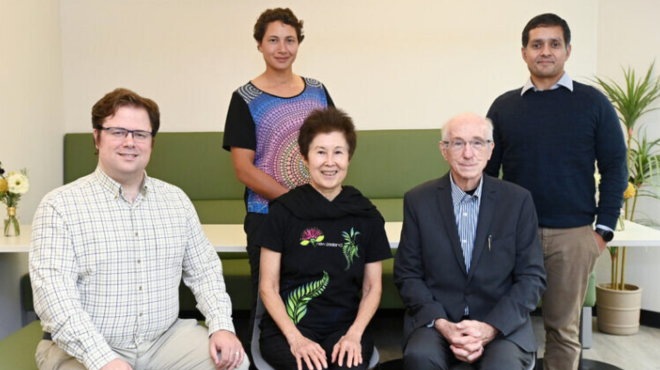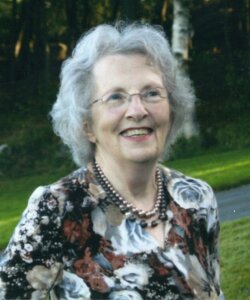
Donor generosity boosts postdoctoral fellows’ success
Three new postdoctoral fellows are engaged in trailblazing research, thanks to the support of Dalhousie alum Dr. Donald Hill and his family.
By Christena Copeland | For Giving Power
Dr. Donald Hill (MD’60, LLD’87) understands all too well the many challenges students face when completing graduate studies – he was in the same shoes several decades ago while studying medicine at Dalhousie University. More than 60 years later, this alum is still making a huge impact on the health and wellness of our community and beyond.
A celebrated heart surgeon, researcher, and innovator, Donald Hill played a vital role in making the previously unimaginable possible: designing life-saving devices that treated patients with advanced heart failure. Recalling his own experiences as a student and applying the solutions-focused approach he has honed over the years, he established the Donald Hill Family Postdoctoral Fellowships in 2018. Not only do these fellowships recognize the time, intellect, and financial supports needed to complete postdoctoral work, they also encourage recipients to become skilled at exploring unique solutions for the broad scope of challenges they face.
“It was also my wish to awaken and permanently instill a cultural discipline that has these postdocs mindfully considering the rest of society as a vital consequence of their research,” says Donald. “All science is in the media spotlight, and we are all part of the same world.”
A family tradition

Shirley Hill (BA’54)
A love of Dalhousie and academia was something of a family tradition for the Hills – Donald’s sister Shirley Hill (BA’54) was also a proud alum and donor to the university. A love of literature, social sciences, and philanthropy played a critical role throughout her career and life, and she supported the Dalhousie Faculty of Medicine’s Molly Appeal campaign for over 29 years. Upon her recent passing, a significant bequest supported the Donald Hill Family Postdoctoral Fellowships. This support was recognized through the naming of one of the three fellowships as the Shirley Hill Fellow. Analytical writer Sheheryar “Shero” B. Sheikh is proud to be named the 2023 Shirley Hill Fellow.
“I am in awe of [Donald’s] vision and honoured to hold the fellowship named for his sister, Shirley,” says Sheikh. “He has brought together disciplines from across campuses, encouraging humanities scholars to talk to computer science and medicine scholars. It’s bridging gaps. I aim in my lifetime to build connections by gathering narrative and storytelling between settlers, immigrants, and Indigenous communities within Canada. His remarkable imagination has enabled me to believe more in that long-term project.”
Challenging situations require comprehensive solutions
While Sheikh is using research to explore globalization, allocation of resources, and human interactions with natural ecology and ecosystems, two other recipients of these postdoctoral fellowships – Nelly Amenyogbe and Shane Forbrigger (BEng’15, MASc’17) – are also focusing on advancing societal outcomes.
Amenyogbe (Faculty of Medicine), and Forbrigger (Faculties of Computer Science and Engineering) are both deeply invested in finding wide-ranging strategies and solutions.
“Being close to my Ghanaian heritage and involved in the community in various ways, I had many role models that showed me the power of connecting your profession with community,” says Amenyogbe. “I therefore jumped at the chance to pursue my graduate degree in understanding newborn infection, especially among vulnerable populations, where most of the toll lies.”
Amenyogbe’s goal is to align discovery research with practical ways to improve health among people and communities facing barriers, like ensuring newborn babies receive the right vaccine within a critical window of opportunity. She recently received a significant Canadian Institutes of Health Research (CIHR) early career transition award in research excellence, diversity, and independence.
Forbrigger is using robotics and engineering to develop technologies that help stroke survivors access high-quality treatment and to give rehabilitation therapists better tools for understanding their patients’ treatment needs.
“I want to apply my technical skills and knowledge to help people and improve their lives,” Forbrigger explains. “There are different ways to do that, but I ended up finding my way into medical and rehabilitation robotics. My grandmother developed physical impairments when I was very young, so I think about her when I’m working on my research. [Donald’s] gift is allowing me to flush out comprehensive strategies for helping stroke patients heal better and faster.”
Financial support for brilliant postdoctoral fellows
Today, Sheikh, Amenyogbe, and Forbrigger can focus on their important work, without having to worry about how their research will be funded or how their bills will be paid. Thanks to the Donald Hill Family Postdoctoral Fellowships, these brilliant minds can forge ahead, continuing to develop innovative solutions for the problems facing our communities.
“Looking back on my clinical and research career, it was my experience that many science postdocs could not establish a job, career, and livable income, despite having 20 or more years of education,” says Donald. “These fellowships provide three years of uninterrupted salary support, so each fellow has the opportunity and accountability to develop a career that will lead somewhere permanent and rewarding for both themselves and society.”